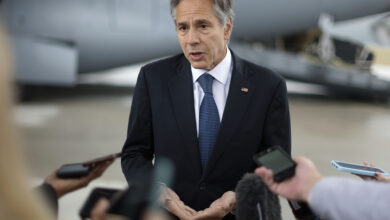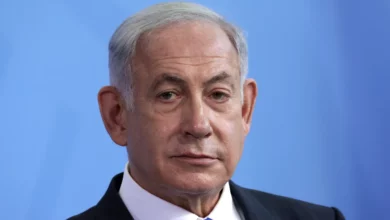
As Israel frets about the lifting of sanctions on Iran and its troubled relations with the European Union, on the other side of the Middle East conflict – the Palestinians – an uneasy quiet has fallen that speaks of ideas running out.
Palestinian President Mahmoud Abbas, elected to a four-year term 11 years ago this month, rarely appears in public. His pledge to hold a congress of his Fatah party to elect new leaders has repeatedly been put off. Factionalism is growing.
Some of those once high up in the party have been removed from their posts, leaving those who remain wondering what the plan is, if there is one. At 80, and still smoking a packet of cigarettes a day, Abbas has no clear successor.
His efforts to raise Palestine's profile on the world stage, principally by joining the International Criminal Court in the Hague last June, appear to have lost momentum. ICC prosecutors have so far declined to open any criminal investigation, despite the Palestinians handing over heaps of evidence.
Hopes that the French would usher through a new UN resolution on Palestinian statehood have not come to fruition, even if discussion on the subject continues.
And as if efforts to drum up support from Arab states were not enough of a struggle in a region swamped with bigger concerns, a member of the Palestinian negotiating team was arrested this week for spying for Israel.
Faced with such an array of problems, the response from the Palestinian leadership has been to resort to an age-old solution: to call for an international conference. Political analysts find themselves aggrieved at the lack of direction.
"There are no new strategies," said Hani Habib, a Gaza-based columnist and political commentator. "There is not even a Palestinian thinking or vision, let alone strategy," he said, blaming what he called "Palestinian political bankruptcy".
"This is the biggest disaster: the world does not bother about us and we ourselves are careless about our present and future. We have lost the respect of the world."
Fading prospects
Habib is not alone in his sense of despair. European diplomats who liaise with the Palestinians have taken to rolling their eyes when asked how they see the situation unfolding.
Some mid-level Palestinian officials are open about their frustrations and their concerns not only about divisions between Fatah and the Islamist group Hamas in Gaza, but splits within Fatah itself, which could tear Palestinian politics asunder.
Abbas's spokesman, Nabil Abu Rdainah, dismisses the naysayers and says there is a plan. "International contacts and consultations" are underway about holding a conference, he says, with the aim of ending Israel's 49-year occupation.
"The coming weeks and months will represent a new track in the Israeli-Palestinian conflict and on the future of the Palestinian cause and its consequences," he told Reuters.
Ordinary Palestinians find that unconvincing.
"People are walking around as if they were stoned because of the growing disappointment," said Jamil Sabaana, 34, a trader in the West Bank. "Every day we say things will get better and they get worse. God only know where we are going."
Mohammed, a 55-year-old teacher in Gaza, was even more withering. "When you listen to a Palestinian leader now, you think he is in a coma. You don't hear something that is relevant to our suffering."
The political sclerosis comes at a time of stepped up Palestinian-Israeli violence, with 25 Israelis and a US citizen killed in stabbings, shootings and car rammings over the past four months. In the same period, 148 Palestinians, most of them attackers, have been killed by Israeli forces.
Overall, it tends to play into Israel's hands. Prime Minister Benjamin Netanyahu has condemned the violence and accused Abbas of inciting it. He says he is ready to return to peace talks, but says Abbas is not a reliable partner. The upshot is no progress on negotiations – the last broke down in April 2014 – and no prospect of any for the foreseeable future.




